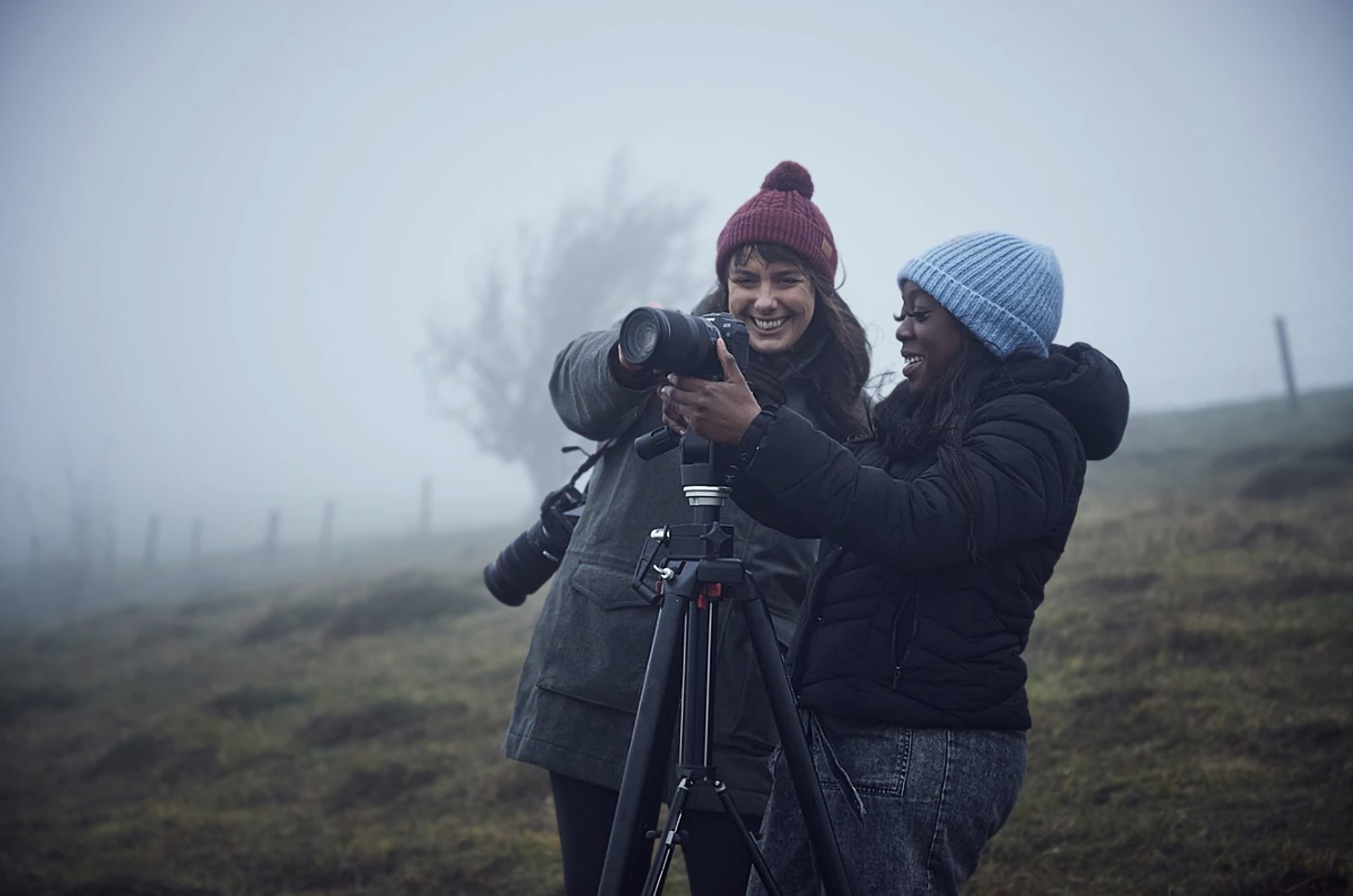5 tips to start a career in photography after college or university
Canon Ambassador Lucia Griggi offers advice for aspiring photographers who are graduating from university

With college and university terms at an end, photography students will be looking to take their next steps into becoming a professional photographer – and as one of the most competitive industries around, it's a transition that even the most talented shooters find difficult.
However, there is more to turning pro than just the quality of your work – indeed, your raw photographic ability alone will only get you so far. Canon Ambassador Lucia Griggi has forged an impressive career that has led her to work with the likes of the BBC, Warner Brothers, Disney, Patagonia, Red Bull, Rip Curl and Billabong – and she has also transitioned into filmmaking, directing trailers for Hollywood blockbusters such as Mad Max.
Lucia has shared her top five tips for students looking to start careers as professional photographers. So, if you're waving goodbye to college or university, read on to see where and how to go next!
1) Taking photos is just the beginning
The first thing that young photographers should consider is that a profession in photography isn’t just about knowing the fundamentals of photography. There’s a huge business element including the importance of pitching ideas, client management and everything else that goes with showing yourself in a way that will get you commissions.
It’s great to focus on your craft, as this will set you apart from other photographers – however, selling yourself is just as important as the quality of your work.
2) Create a network
As a young photographer just getting started in the industry, it’s a good idea to use the photography network around you to help develop your skills. Proactively getting in touch with photographers specializing in your field and asking for their feedback on your work will help you develop your eye.
Canon’s Student Development Programme is another a great way to develop your skills and build a network. The programme offers anyone free online lectures with Canon Ambassadors and other renowned photographers, who share guidance and vision over industry trends. The lectures include Q&A sessions at the end, which is a great way for you to make the most of the experience.
Networks are also hugely important to develop your clientele. Getting small businesses or famous individuals to support you by sponsoring you is a great way to start at the beginning; within a couple of years, you can build your career with them and eventually earn a salary.
Many people look for young photographers to support on shoots, headshots, cards, or websites. Often word of mouth will draw in great new business – so it's about working with the people around you and finding your place.
3) Keep your style broad
Most people have their preference in style when shooting, whether it be portraiture, landscape, sports or wildlife. However, I’d say get a broader range of experience to begin with – because it's still very much valued in the industry.
The range of skills needed to successfully shoot in these areas are broad, so it will add a great breadth to your abilities as a photographer. These skills won’t go to waste even if you do eventually specialize and find your niche, as they’re greatly transferable and intertwined. I do think it's good to have a focus, but I also believe it's good to be flexible – particularly at the start of your career.

4) Branch out to video as well as stills
A lot of the content we see nowadays is based on video. The direction of the industry looks like video is becoming increasingly popular, so it’s key to get some experience in this field. Mirrorless cameras like the Canon EOS R5 or Canon EOS R6 shoot with both photo and video, so it’s a good idea to invest in versatile equipment that can capture both.
It’s also getting easier to crop high-quality images from video – the EOS R5, for example, has an 8K frame grab function (giving you a 35MP image) as well as a 4K frame grab (18MP). It’s a great way to get the perfect shot, by stopping the video at the precise moment you wish to clip, so it’s definitely worth playing around with these features and familiarizing yourself with both mediums.
5) Resilience is key
It’s a tough and competitive industry, so I’d say it might not be an easy road for anyone who wants to achieve their dream. What separates those people who are living their dream and following their passion from those who aren't, is simply hard work and never giving up!
You may face similar personal barriers to myself, such as being a minority group within the industry. When I started out as an action sports photographer, I was one of the only females in a male-dominated group, which made it difficult for me to be recognized and have a voice. While there are more opportunities for women in niche genres now, you may still feel like a minority in certain sub-industries.
Ultimately, you must keep your eyes on the goal and your dream – as I don’t believe it’s an easy journey for anyone.
Good luck!
Read more:
Canon EOS R5 review
Canon EOS R6 review
Canon EOS R5 vs R6
Best cameras for professionals
Get the Digital Camera World Newsletter
The best camera deals, reviews, product advice, and unmissable photography news, direct to your inbox!

James has 22 years experience as a journalist, serving as editor of Digital Camera World for 6 of them. He started working in the photography industry in 2014, product testing and shooting ad campaigns for Olympus, as well as clients like Aston Martin Racing, Elinchrom and L'Oréal. An Olympus / OM System, Canon and Hasselblad shooter, he has a wealth of knowledge on cameras of all makes – and he loves instant cameras, too.
